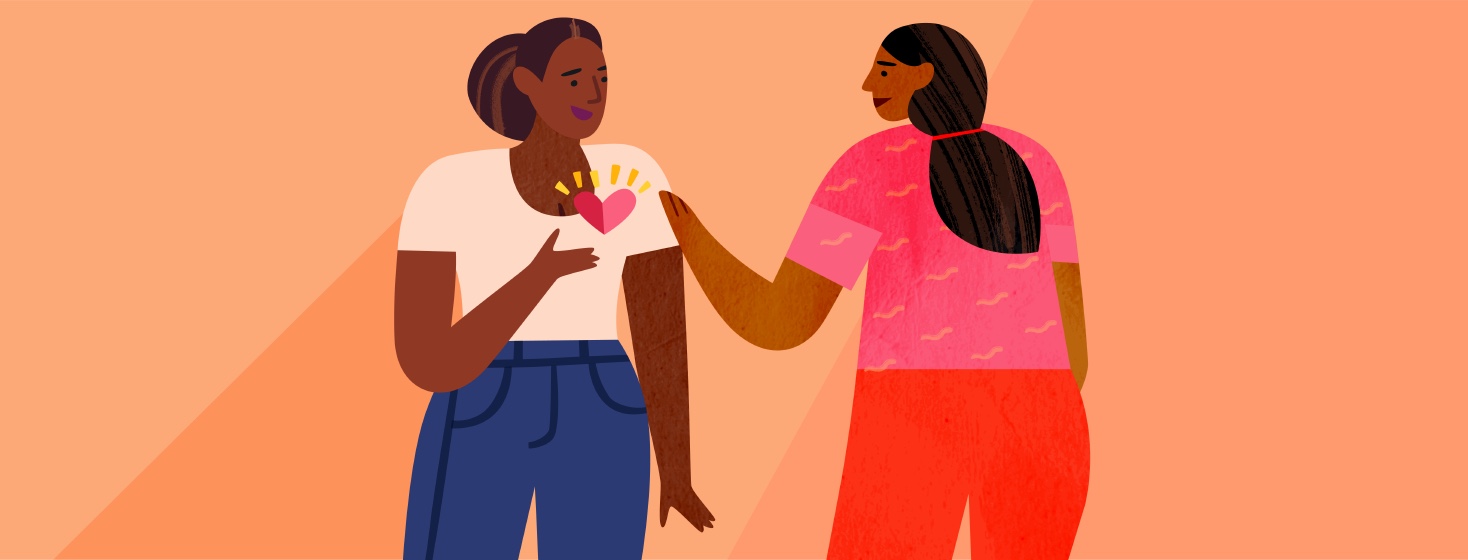One Journey, Two Paths: The Impact of Skin Cancer on Support Systems
Life throws some mean curve balls sometimes, not the least of which is cancer. If you have been diagnosed with skin cancer or prescribed topical chemotherapy for recurring precancerous lesions (actinic keratosis), you know how harrowing of an experience it can be for everyone involved. Your support system, family, and friends who know you at both your best and worst are there to lift you up, hold your hand, and listen to you vent. I’ll go ahead and say it: An awesome support system is the most valuable thing you can have as you begin your skin cancer journey.
The importance of a skin cancer support system
Keep in mind that your journey doesn’t always belong solely to you. Those family members and friends who see you through your toughest days may begin to look at your struggle in a whole new light. While they are supporting you, encouraging you, and listening to your fears while cheering your successes, they may internalize many aspects of your diagnosis and treatment. When they take to heart what you are dealing with, they become advocates who move forward and can change their own lives and the lives of others. It’s a chain reaction that starts, unfortunately, with a diagnosis no one wanted to hear.
How my skin cancer journey has impacted my best friend
I asked my best friend, Amy, about her feelings regarding my skin cancer experience. She has watched me treat my skin with Efudex multiple times over the last six years. She was gracious enough to answer a few questions about her new perspective on skin cancer and ways family and friends can support a newly-diagnosed loved one.
How familiar were you with skin cancer before you saw my experience with Efudex?
I knew very little about skin cancer. I didn't personally know anyone who had skin cancer before I met you. None that I knew of, anyway. None of my direct family had been diagnosed. None of my friends ever talked about it. I knew that tanning beds could cause cancer from what I had read, and I knew that I should wear sunscreen. I knew, but I didn't do it consistently.
Has my struggle made you think about your own skin any differently? Self-checks? Sunscreen?
Yes. I'm much more consistent about wearing sunscreen now, especially if I'm going to be outside any extended period of time in direct sun. I was never a conscious tanner, but I never let myself burn now. I burned before out of carelessness. I also tend to keep an eye on moles or suspicious spots more closely.
Do you consider skin cancer to be a "serious" cancer? Have your thoughts changed over the years? How?
Definitely. It is very serious. I guess I didn't take it very seriously before, because I knew so little about it. You don't hear about skin cancer as much in the media. It never seemed like one of the "big ones" before. Breast cancer is familiar with pink shirts and ribbons and the month of October being dedicated to the cause. Now, though, we have common friends who have had skin cancer metastasize to other areas, making it even more serious. It can be as serious and deadly as any other cancer if not caught early or treated.
My treatments are rough in many ways. I have a lot of emotional days and battle physical discomfort. What advice would you give to someone who is in a position to support a friend or family member with skin cancer?
The number one thing is to be patient. It's hard to watch a loved one hurting, and Efudex treatments seriously hurt. I want to wince in pain just looking at your skin when you're treating, so I can't imagine how it actually feels. I try to be as patient and steady and present as possible when you're treating. I consistently offer help. I also try to back off when you need space. It's hard for me to recognize the difference between anger directed at me and just general pain, irritability, and depression caused by the treatments, but I'm learning. Be a constant, and a listening ear, but don't be too pushy.
Thank you for your support
While a skin cancer diagnosis brings many questions and even more fears, it can also provide opportunities. It’s difficult to look at it that way, but it’s true. Your diagnosis gives someone else the chance to learn, to do better, and to pass that on to others. In my case, tanning caused the majority of my precancers. My struggle impacted my family and friends, who will then continue to make necessary changes that will form a chain reaction. Thank you, Amy - for your time, your support, and your advocacy.

Join the conversation